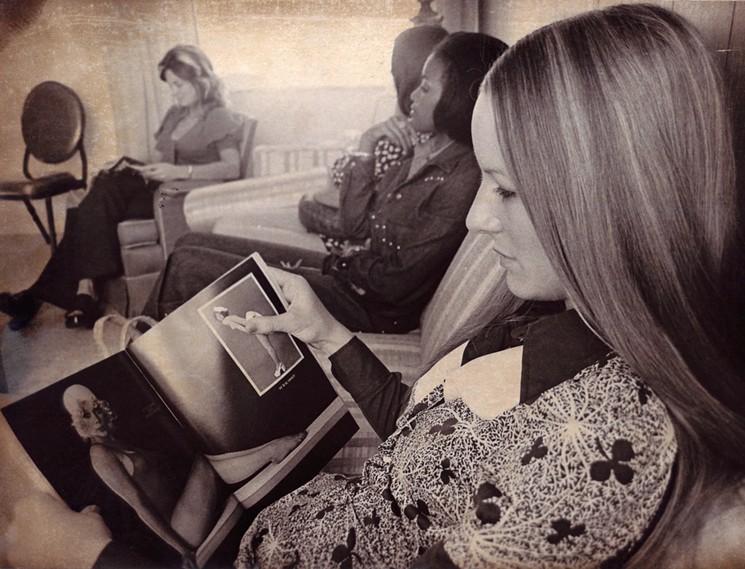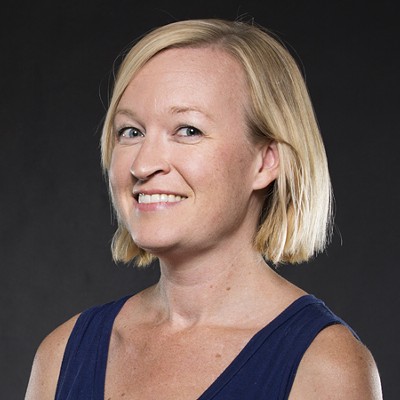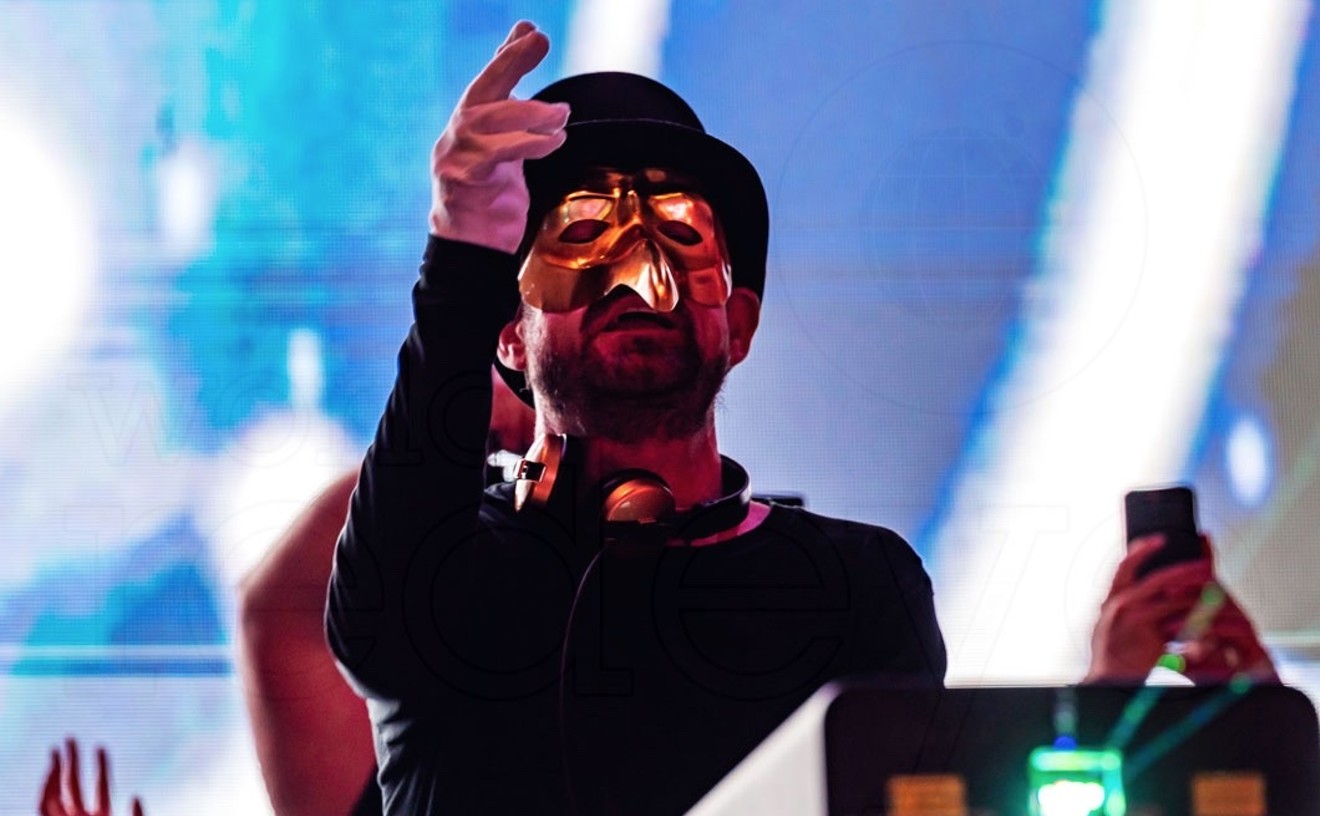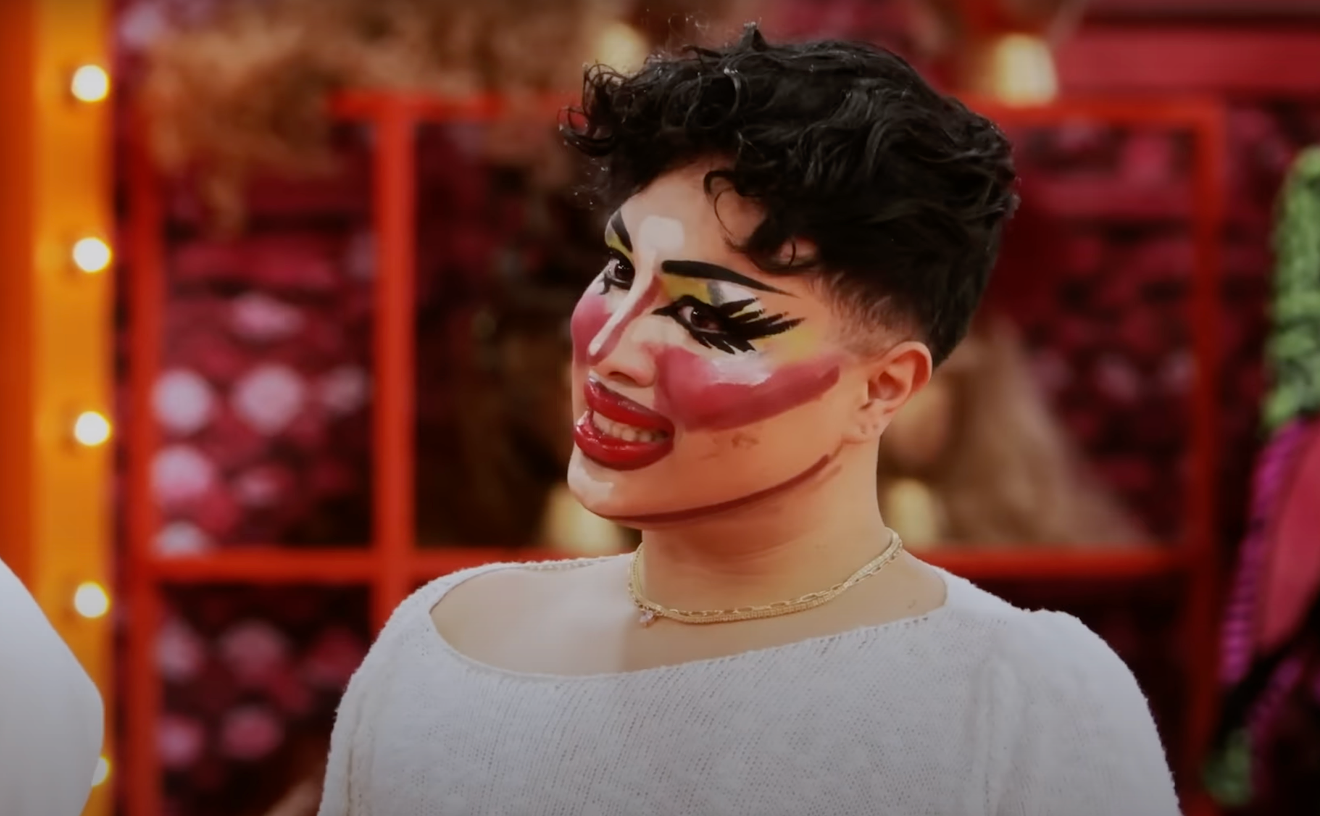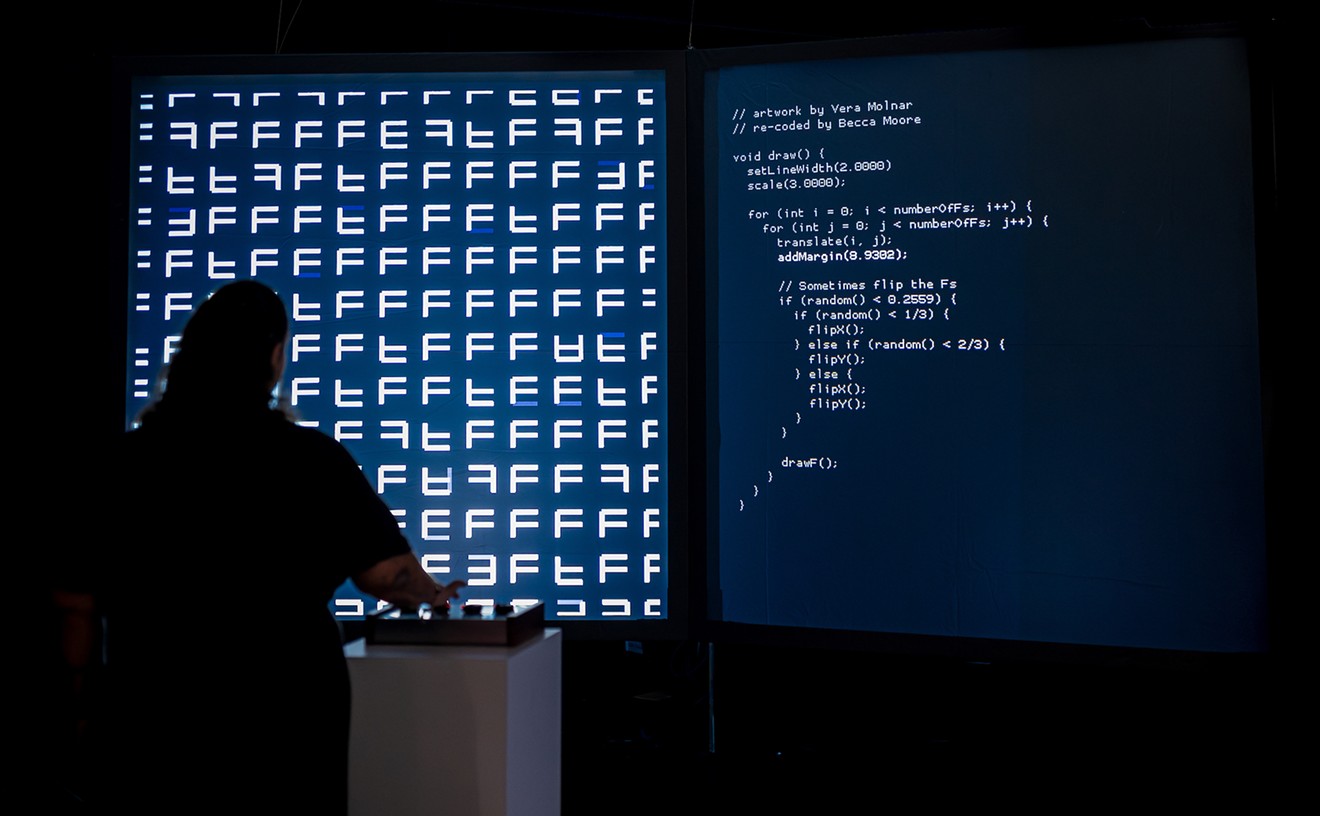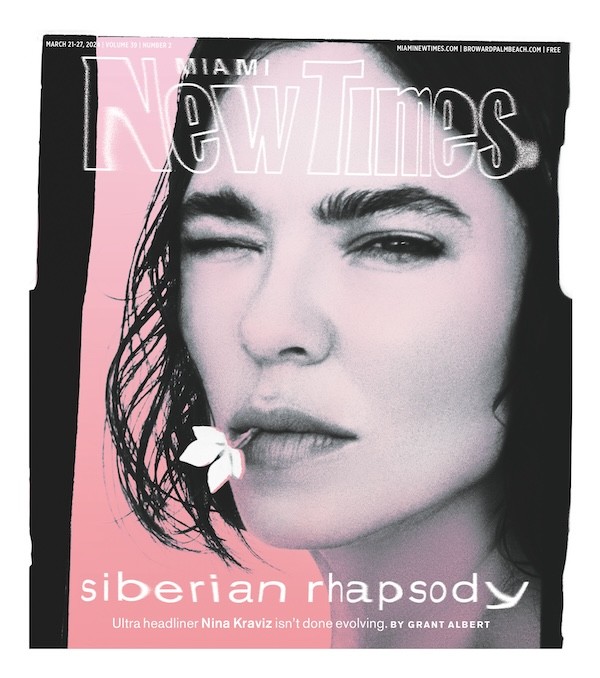Hugh Hefner, the Playboy founder who died last night at the age of 91, will be remembered for helping drive the sexual revolution of the '60s; objectifying women on a massive, unprecedented scale; and surrounding himself with young, attractive, rigidly policed girlfriends for the better part of his life.
Most people won't remember him for running a club in Miami. But the Magic City was home to the first satellite location of the original Playboy Club, opening in 1961, just a year after the Chicago establishment debuted.
The venue, located at 77th Street and Biscayne Boulevard, promised South Florida men all the benefits of its northern counterpart: drinks, dining, live entertainment, and, most important, loads of women parading around in bunny ears and tails.
The club boasted its own "playroom," the main event where the Bunnies mingled and served patrons. But an advertisement for the club suggests guests also visit a "living room" with buffet dining; a "swinging" piano bar with a live jazz trio; and a "Cartoon Corner" with a "rollicking display of Playboy wit and whimsy." The place was open for breakfast, lunch, and dinner, a 24-hour party.
The club was also a draw for young women who aspired to be Bunnies, lured by the celebrity cachet and glamour that Hefner promised. In 2011, Alice Wilder, a former Miami Bunny, recalled her experiences to NBC 6. "We even had Johnny Carson in one night," Wilder remembered.
Though in later years Hefner's clubs earned a seedy reputation, and Hefner himself was sued for sexual battery, Wilder remembered the Miami club as a "straight-up" establishment. "There were all kinds of rules we had to follow," she said.
Not all Miami women were impressed with Playboy, however. Feminist activist Roxcy Bolton wrote a scathing response to the Playboy Hotel, which opened in Miami Beach around the same time as the Upper Eastside club, after a staff member suggested she hold a committee meeting there.
"Your colossal gall is exceeded only by my tolerance, despite the stress upon my good nature," Bolton shot back. "It would seem that common sense would tell you that a feminist committed to equality for women would not be caught dead in that establishment of yours that exploits, degrades, uses, and abuses the bodies of women."
But in one instance, Playboy's Miami club was an unlikely site of racial justice. According to Elizabeth Fraterrigo's book Playboy and the Making of the Good Life in Modern America, Hefner bought the club back when its franchise owner began barring black customers from entering. The Miami club became the first to overturn its policy of segregation, a practice that soon extended to all the clubs in the Playboy chain.
Hefner found a way to turn even that progressive step into gross advertising, though. Soon afterward, the magazine announced that 67 foreign-born women were employed as Bunnies by its chain of clubs, noting that "11 Oriental Bunnies are particularly in the limelight this year, which according to the Chinese calendar is the Year of the Rabbit." The magazine also boasted, "We presently have more than 25 'Chocolate Bunnies.'"
The Upper Eastside club was relocated in 1983 to 1550 NW LeJeune Rd., near Miami International Airport. That operation didn't last long, either; it continued to struggle financially and was out of business by the late '80s.
What remains, however, is the Playboy Club's lasting mindset, which has never fully disappeared from South Florida. When tourists think of the Magic City, they think of skin, sex, and scandal, all things Hefner embraced and even championed. The man is gone, but his legacy, for better or worse, lives on in Miami.
[
{
"name": "Air - MediumRectangle - Inline Content - Mobile Display Size",
"component": "19274298",
"insertPoint": "2",
"requiredCountToDisplay": "2"
},{
"name": "Editor Picks",
"component": "17482312",
"insertPoint": "4",
"requiredCountToDisplay": "1"
},{
"name": "Inline Links",
"component": "18711090",
"insertPoint": "8th",
"startingPoint": 8,
"requiredCountToDisplay": "7",
"maxInsertions": 25
},{
"name": "Air - MediumRectangle - Combo - Inline Content",
"component": "17482310",
"insertPoint": "8th",
"startingPoint": 8,
"requiredCountToDisplay": "7",
"maxInsertions": 25
},{
"name": "Inline Links",
"component": "18711090",
"insertPoint": "8th",
"startingPoint": 12,
"requiredCountToDisplay": "11",
"maxInsertions": 25
},{
"name": "Air - Leaderboard Tower - Combo - Inline Content",
"component": "17482313",
"insertPoint": "8th",
"startingPoint": 12,
"requiredCountToDisplay": "11",
"maxInsertions": 25
}
]





